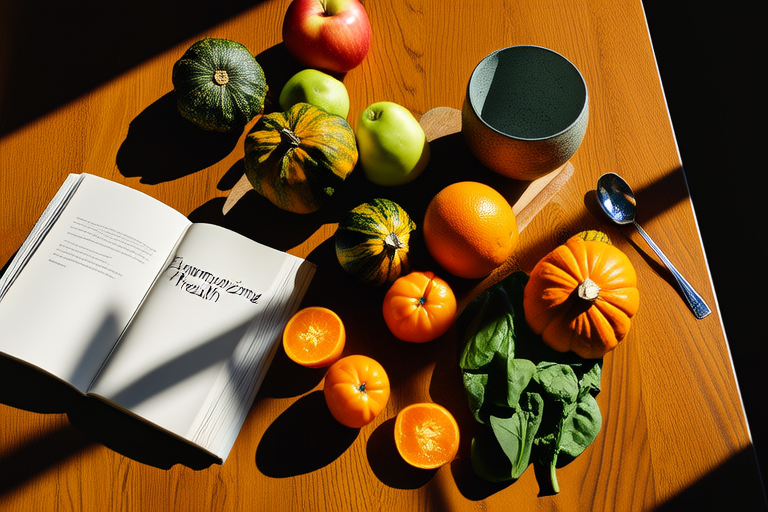Seasonal Adaptations for Health Preservation
The natural world is a dynamic system, constantly changing with the passage of time. The cycle of the seasons provides us with distinct opportunities to adapt our health preservation methods to maintain physical and mental well-being. By aligning our daily routines with the natural rhythms of the earth, we can optimize our health and enhance our quality of life. This article explores the importance of adapting health preservation methods to the four seasons—spring, summer, autumn, and winter—and offers specific practices for each season that promote physical and mental well-being.
Spring: A Time of Renewal and Growth
Spring is a season of renewal, marked by the awakening of nature after the long winter. As the days grow longer and warmer, the body and mind also undergo a process of rejuvenation. In Traditional Chinese Medicine (TCM), spring corresponds to the liver and gallbladder, which are responsible for detoxification and emotional regulation. Therefore, it’s crucial to focus on these areas during this time.
- Dietary Changes: Emphasize fresh, light foods like leafy greens, sprouts, and other vegetables rich in chlorophyll. These foods support liver function and provide essential nutrients for detoxification. Incorporate more sour flavors, which are believed to strengthen the liver according to TCM. Examples include lemon, vinegar, and fermented foods.
- Exercise Routines: Engage in activities that promote flexibility and movement, such as yoga, tai chi, and stretching exercises. These practices help release pent-up energy and tension accumulated during winter. Additionally, outdoor activities like hiking or cycling can stimulate circulation and boost mood.
- Sleep Habits: As daylight increases, it’s important to adjust your sleep schedule accordingly. Aim for seven to eight hours of sleep per night, but try to wake up earlier to take advantage of the longer days. Morning sunlight exposure can help regulate your circadian rhythm and improve overall sleep quality.
- Stress Management Techniques: Spring is a time of transition, and many people may experience feelings of anxiety or overwhelm as they adapt to the changing environment. Mindfulness meditation and deep breathing exercises can help calm the nervous system and reduce stress levels. Consider practicing qigong, a form of gentle exercise that combines movement, breathing, and meditation.
Summer: Embracing the Heat
Summer is a season of abundance, characterized by long, warm days and vibrant colors. In TCM, summer is associated with the heart and small intestine, which are responsible for regulating emotions and digestion. During this time, it’s essential to stay hydrated, cool, and balanced.
- Dietary Changes: Focus on cooling foods and beverages to counteract the heat. Watermelon, cucumber, and mint tea are excellent choices. Avoid heavy, greasy foods that can cause indigestion and sluggishness. Opt for light, easily digestible meals like salads, soups, and grilled fish. Include more bitter flavors, such as dandelion greens and arugula, which are believed to have a cooling effect on the body.
- Exercise Routines: Summer is an ideal time to engage in water-based activities like swimming or water aerobics. These low-impact exercises provide cardiovascular benefits while keeping you cool. Outdoor sports like tennis, basketball, and soccer can also be enjoyable, but make sure to stay hydrated and avoid exercising during the hottest parts of the day.
- Sleep Habits: With the increased heat and humidity, it may be difficult to fall asleep at night. To promote better sleep, create a cool sleeping environment by using fans, air conditioning, or breathable bedding. Practice good sleep hygiene by establishing a consistent bedtime routine and limiting screen time before bed.
- Stress Management Techniques: Summer is a time for relaxation and enjoyment, so take advantage of the extended daylight hours to engage in leisure activities that bring you joy. Spending time in nature, whether through hiking, camping, or simply taking a walk in the park, can help reduce stress and improve mental well-being. Consider incorporating journaling or creative pursuits into your daily routine to express yourself and process emotions.
Autumn: Nurturing Balance and Harmony
Autumn is a season of transition, marked by the gradual cooling of temperatures and the changing colors of leaves. In TCM, autumn is associated with the lungs and large intestine, which are responsible for respiration and elimination. During this time, it’s important to focus on respiratory health and digestive function.
- Dietary Changes: As the weather cools, incorporate warming foods into your diet to support lung health. Soups, stews, and roasted vegetables are excellent choices. Include more pungent flavors, such as garlic, onions, and ginger, which are believed to open the pores and facilitate breathing. Avoid raw, cold foods that can weaken the digestive system.
- Exercise Routines: Engage in moderate-intensity exercises that promote cardiovascular health and lung function, such as brisk walking, jogging, or cycling. Yoga and Pilates can also be beneficial, as they focus on deep breathing and core strength. As the days grow shorter, consider indoor activities like dancing or group fitness classes to stay active and social.
- Sleep Habits: With the cooler temperatures, it may be easier to fall asleep at night. However, it’s still important to establish a consistent bedtime routine and ensure a comfortable sleeping environment. Use blankets and pillows that provide adequate warmth, and consider using a humidifier to prevent dryness.
- Stress Management Techniques: Autumn is a time for reflection and introspection, so take advantage of this opportunity to assess your mental and emotional state. Practices like journaling, mindfulness meditation, and gratitude exercises can help you process emotions and cultivate a sense of inner peace. Consider participating in group activities or community events to foster social connections and combat feelings of isolation.
Winter: Embracing Stillness and Rest
Winter is a season of stillness and rest, characterized by short, cold days and long nights. In TCM, winter is associated with the kidneys and bladder, which are responsible for storing vital energy and regulating fluid balance. During this time, it’s essential to conserve energy and protect against cold.
- Dietary Changes: Focus on warming foods and beverages that nourish the kidneys and promote fluid balance. Soups, stews, and roasted root vegetables are excellent choices. Include more salty flavors, such as seaweed, miso, and tamari, which are believed to have a grounding effect on the body. Avoid excessive consumption of cold, raw foods that can weaken the digestive system.
- Exercise Routines: Winter is an ideal time to engage in low-impact exercises that promote circulation and joint mobility, such as walking, swimming, or using an elliptical machine. Yoga and Pilates can also be beneficial, as they focus on deep breathing and core strength. As the days grow shorter, consider indoor activities like dancing or group fitness classes to stay active and social.
- Sleep Habits: With the cooler temperatures, it may be easier to fall asleep at night. However, it’s still important to establish a consistent bedtime routine and ensure a comfortable sleeping environment. Use blankets and pillows that provide adequate warmth, and consider using a humidifier to prevent dryness.
- Stress Management Techniques: Winter is a time for rest and recovery, so take advantage of this opportunity to recharge your batteries. Practices like journaling, mindfulness meditation, and gratitude exercises can help you process emotions and cultivate a sense of inner peace. Consider participating in group activities or community events to foster social connections and combat feelings of isolation.
General Advice for Maintaining a Balanced Lifestyle Throughout the Year
Maintaining a balanced lifestyle requires attention to all aspects of your health, including physical, mental, and emotional well-being. Here are some general tips to help you stay healthy and happy throughout the year:
- Stay active: Regular exercise is essential for maintaining physical health and promoting mental well-being. Find activities that you enjoy and make them a part of your daily routine.
- Eat a balanced diet: Focus on whole, nutrient-dense foods that provide the necessary vitamins and minerals for optimal health. Pay attention to your body’s needs and adjust your diet as the seasons change.
- Get enough sleep: Sleep is essential for physical and mental restoration. Establish a consistent bedtime routine and ensure a comfortable sleeping environment.
- Manage stress: Chronic stress can have negative effects on both physical and mental health. Develop coping strategies that work for you, such as mindfulness meditation, deep breathing exercises, or engaging in hobbies.
- Stay connected: Social connections are important for emotional well-being. Make time for friends and family, and participate in community activities.
- Seek professional help when needed: If you’re struggling with your health or well-being, don’t hesitate to seek professional help from a healthcare provider or mental health counselor.
In conclusion, adapting health preservation methods to the four seasons can help you maintain physical and mental well-being throughout the year. By paying attention to the natural rhythms of the earth and adjusting your daily routines accordingly, you can optimize your health and enhance your quality of life. Remember to stay active, eat a balanced diet, get enough sleep, manage stress, stay connected, and seek professional help when needed. With these practices in place, you’ll be well on your way to a healthier, happier you.










